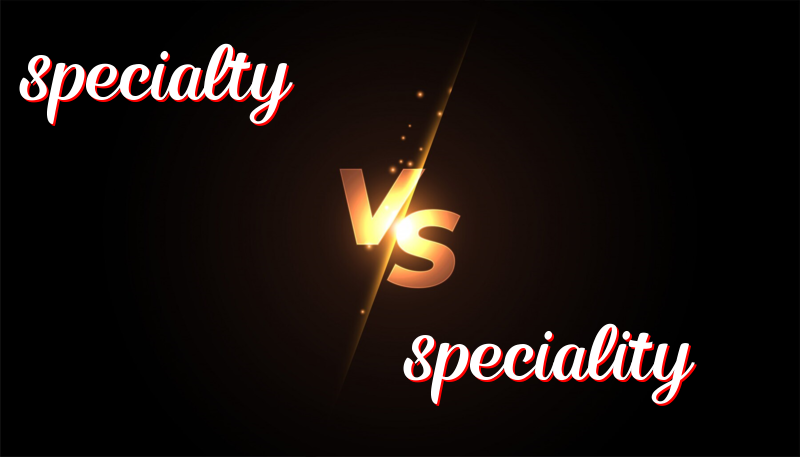Specialty vs. Speciality: Understanding the Difference
Specialty vs. Speciality: What’s the Difference?
Both “specialty” and “speciality” are terms that describe something unique or specific to a particular person or thing. Even though they have the same meaning, the way they are spelled can cause confusion. Let’s clear up the differences between the two words.
History:
The word “specialty” comes from the Latin word “specialis,” meaning “individual” or “unique.” On the other hand, “speciality” is derived from the Old French word “specialite,” which has the same meaning.
How to Use Them:
“Specialty” is commonly used in American English, while “speciality” is more commonly used in British English.
Trick to Remember the Difference:
Remember that “specialty” has the letter “t” just like the words “specific” and “particular,” indicating something unique. “Speciality” ends with “-ity,” similar to other words like “quality” or “quantity.”
Examples of Use:
Specialty:
- This restaurant’s specialty is seafood pasta.
- Her specialty in school is math.
- His specialty coffee shop serves the best lattes.
- The doctor’s specialty is cardiology.
- My mom’s specialty dish is lasagna.
Speciality:
- In England, fish and chips is a speciality.
- Her speciality in baking is cupcakes.
- Learning a foreign language is a speciality of hers.
- British pubs are known for their speciality beers.
- His speciality store sells handmade jewellery.
Summary:
In summary, “specialty” and “speciality” both mean something unique or specific. Remember, “specialty” is more common in American English, while “speciality” is favored in British English.

Leave a Reply
You must be logged in to post a comment.